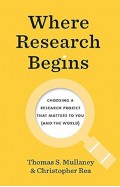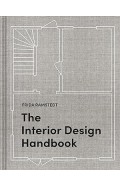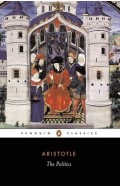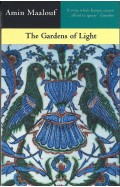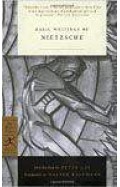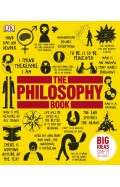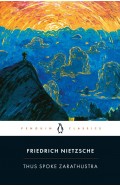- Home
- Books
- Categories
- Non Fiction
- Philosophy
- Dark Brilliance - The Age of Reason from Decartes to Peter the Great
Dark Brilliance - The Age of Reason from Decartes to Peter the Great
By: Paul Strathern
-
Rs 2,596.75
- Rs 3,995.00
- 35%
You save Rs 1,398.25.
Due to constant currency fluctuation, prices are subject to change with or without notice.
During the 1600s, between the end of the Renaissance and the start of the Enlightenment, Europe lived through an era known as the Age of Reason. This was a revolutionary period which saw great advances in areas such as art, science, philosophy, political theory and economics.
However, all this was accomplished against a background of extreme political turbulence and irrational behaviour on a continental scale in the form of internal conflicts and international wars. Indeed, the Age of Reason itself was born at the same time as the Thirty Years' War, which would devastate central Europe to an extent that would not be seen again until the twentieth century.
The period also saw the development of European empires across world and a lucrative new transatlantic commerce began, which brought transformative riches to western European society. However, there was a dark underside to this brilliant wealth: it was dependent upon mass slavery.
By exploring all the key events and bringing to life some of the most influential characters of the era, including Caravaggio, Rembrandt, Newton, Descartes, Spinoza, Louis XIV and Charles I, Paul Strathern tells the story of this paradoxical age, while also counting the human cost of imposing the progress and modernity upon which the Western world was built.
During the 1600s, between the end of the Renaissance and the start of the Enlightenment, Europe lived through an era known as the Age of Reason. This was a revolutionary period which saw great advances in areas such as art, science, philosophy, political theory and economics.
However, all this was accomplished against a background of extreme political turbulence and irrational behaviour on a continental scale in the form of internal conflicts and international wars. Indeed, the Age of Reason itself was born at the same time as the Thirty Years' War, which would devastate central Europe to an extent that would not be seen again until the twentieth century.
The period also saw the development of European empires across world and a lucrative new transatlantic commerce began, which brought transformative riches to western European society. However, there was a dark underside to this brilliant wealth: it was dependent upon mass slavery.
By exploring all the key events and bringing to life some of the most influential characters of the era, including Caravaggio, Rembrandt, Newton, Descartes, Spinoza, Louis XIV and Charles I, Paul Strathern tells the story of this paradoxical age, while also counting the human cost of imposing the progress and modernity upon which the Western world was built.
Rise and Fall: A History of the World in Ten Empires
By: Paul Strathern
Rs 2,335.50 Rs 2,595.00 Ex Tax :Rs 2,335.50
The Florentines - From Dante to Galileo
By: Paul Strathern
Rs 1,686.75 Rs 2,595.00 Ex Tax :Rs 1,686.75
Ten Cities That Led the World - From Ancient Metropolis to Modern Megacity
By: Paul Strathern
Rs 1,946.25 Rs 2,595.00 Ex Tax :Rs 1,946.25
The Other Renaissance - From Copernicus to Shakespeare
By: Paul Strathern
Rs 2,621.25 Rs 3,495.00 Ex Tax :Rs 2,621.25
Dark Brilliance - The Age of Reason from Decartes to Peter the Great
By: Paul Strathern
Rs 3,831.75 Rs 5,895.00 Ex Tax :Rs 3,831.75
Dark Brilliance - The Age of Reason from Decartes to Peter the Great
By: Paul Strathern
Rs 2,596.75 Rs 3,995.00 Ex Tax :Rs 2,596.75
Zubin Mehta: A Musical Journey (An Authorized Biography)
By: VOID - Bakhtiar K. Dadabhoy
Rs 472.50 Rs 1,050.00 Ex Tax :Rs 472.50
The Greatness Mindset - Unlock the Power of Your Mind and Live Your Best Life Today
By: Lewis Howes
Rs 4,405.50 Rs 4,895.00 Ex Tax :Rs 4,405.50
How to Understand and Deal with Health Anxiety - Everything You Need to Know to Manage Health Anxiety
By: Katy Georgiou
Rs 2,471.25 Rs 3,295.00 Ex Tax :Rs 2,471.25
Decisionscape - How Thinking Like an Artist Can Improve Our Decision-Making
By: Elspeth Kirkman
Rs 7,496.25 Rs 9,995.00 Ex Tax :Rs 7,496.25
Where Research Begins - Choosing a Research Project That Matters to You (and the World)
By: Thomas S Mullaney
Rs 6,296.25 Rs 8,395.00 Ex Tax :Rs 6,296.25
The Interior Design Handbook - Furnish, Decorate, and Style Your Space
By: Frida Ramstedt
Rs 6,146.25 Rs 8,195.00 Ex Tax :Rs 6,146.25
The Quest For Meaning: Developing A Philosophy Of Pluralism
By: Tariq Ramadan
Rs 1,255.50 Rs 1,395.00 Ex Tax :Rs 1,255.50
The Basic Writings of Nietzsche
By: Peter Gay/Sigmund Freud
Rs 3,775.50 Rs 4,195.00 Ex Tax :Rs 3,775.50
The Greatness Mindset - Unlock the Power of Your Mind and Live Your Best Life Today
By: Lewis Howes
Rs 4,405.50 Rs 4,895.00 Ex Tax :Rs 4,405.50
How to Understand and Deal with Health Anxiety - Everything You Need to Know to Manage Health Anxiety
By: Katy Georgiou
Rs 2,471.25 Rs 3,295.00 Ex Tax :Rs 2,471.25
Decisionscape - How Thinking Like an Artist Can Improve Our Decision-Making
By: Elspeth Kirkman
Rs 7,496.25 Rs 9,995.00 Ex Tax :Rs 7,496.25
Where Research Begins - Choosing a Research Project That Matters to You (and the World)
By: Thomas S Mullaney
Rs 6,296.25 Rs 8,395.00 Ex Tax :Rs 6,296.25
The Interior Design Handbook - Furnish, Decorate, and Style Your Space
By: Frida Ramstedt
Rs 6,146.25 Rs 8,195.00 Ex Tax :Rs 6,146.25
No recently viewed books available at the moment.
Zubin Mehta: A Musical Journey (An Authorized Biography)
By: VOID - Bakhtiar K. Dadabhoy
Rs 472.50 Rs 1,050.00 Ex Tax :Rs 472.50
Rise and Fall: A History of the World in Ten Empires
By: Paul Strathern
Rs 2,335.50 Rs 2,595.00 Ex Tax :Rs 2,335.50
The Florentines - From Dante to Galileo
By: Paul Strathern
Rs 1,686.75 Rs 2,595.00 Ex Tax :Rs 1,686.75
Ten Cities That Led the World - From Ancient Metropolis to Modern Megacity
By: Paul Strathern
Rs 1,946.25 Rs 2,595.00 Ex Tax :Rs 1,946.25
The Other Renaissance - From Copernicus to Shakespeare
By: Paul Strathern
Rs 2,621.25 Rs 3,495.00 Ex Tax :Rs 2,621.25
Dark Brilliance - The Age of Reason from Decartes to Peter the Great
By: Paul Strathern
Rs 3,831.75 Rs 5,895.00 Ex Tax :Rs 3,831.75
Dark Brilliance - The Age of Reason from Decartes to Peter the Great
By: Paul Strathern
Rs 2,596.75 Rs 3,995.00 Ex Tax :Rs 2,596.75
The Greatness Mindset - Unlock the Power of Your Mind and Live Your Best Life Today
By: Lewis Howes
Rs 4,405.50 Rs 4,895.00 Ex Tax :Rs 4,405.50
How to Understand and Deal with Health Anxiety - Everything You Need to Know to Manage Health Anxiety
By: Katy Georgiou
Rs 2,471.25 Rs 3,295.00 Ex Tax :Rs 2,471.25
Decisionscape - How Thinking Like an Artist Can Improve Our Decision-Making
By: Elspeth Kirkman
Rs 7,496.25 Rs 9,995.00 Ex Tax :Rs 7,496.25
Where Research Begins - Choosing a Research Project That Matters to You (and the World)
By: Thomas S Mullaney
Rs 6,296.25 Rs 8,395.00 Ex Tax :Rs 6,296.25
The Interior Design Handbook - Furnish, Decorate, and Style Your Space
By: Frida Ramstedt
Rs 6,146.25 Rs 8,195.00 Ex Tax :Rs 6,146.25












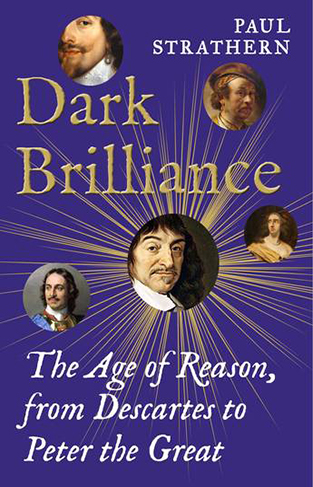
-120x187.jpg?q6)
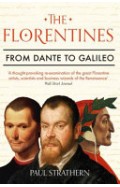
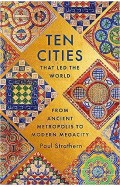
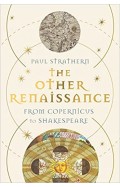
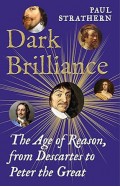

-120x187.jpg?q6)









